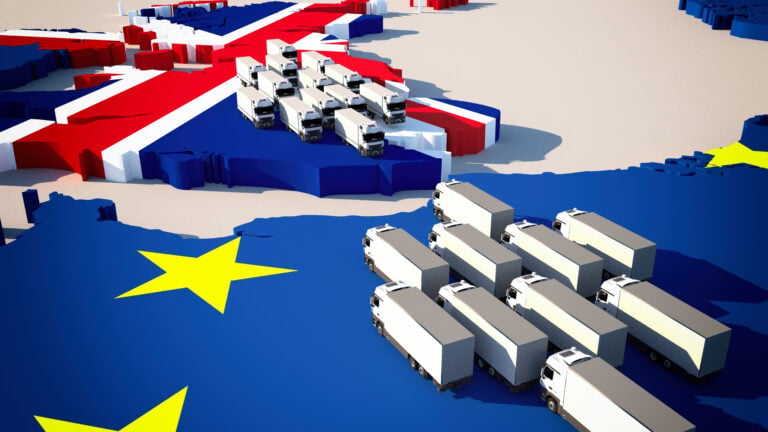A large number of freight forwarders is already learning the hard way that Brexit is having a negative impact on trade and logistics in both the United Kingdom and the European Union. With increased administrative and regulatory hurdles, Brexit is disrupting cross-border connections between the United Kingdom and the European Union in every industry. Regulatory changes, new licenses, visas, border checks, workforce relocation, and so on—have an impact on all sorts of enterprises, from agriculture to banking and everything in between. Most sectors of the economy considered themselves unprepared for the new requirements, and they are concerned about the expenses of complying with the new regulations.

The Key Changes of Brexit
Custom Paperworks
As free commerce between the United Kingdom and the European Union came to an end, numerous customs reforms occurred. As a result, there have been changes to product standards as well as increased paperwork, with the UK National Audit Office estimating that 145,000 UK businesses will be required to complete customs formalities – resulting in an additional 400 million customs declarations per year.
Supply Chain Disruptions
We have also seen a significant disruption in supply chains, with significant delays at British ports as a result of the increased customs procedures, resulting in a backlog of movement in important supply chains (as seen with grocery and manufacturing). However, these difficulties have subsided beyond the initial period of adjustment.
Shifts in standards
Beside, there have been regulatory shifts from EU trade standards to UK trading standards, resulting in modifications to workers’ rights and consumer protection under distinct standards.
The impact on freight and transport rates
These changes have triggered various implications for both British and European haulage companies and will definitely result in price hikes. But let’s breakdown the triggers:
#1 Increased Empty Runs
Following Brexit, most freight trucks returning from the United Kingdom to the European Union had empty return cargoes (it was around just 18 percent pre-Brexit). As a result, hauliers were forced to raise freight transport prices to the United Kingdom, which had a negative impact on logistics and supply chain activities in the United Kingdom.
#2 Hardware and Software price increases
Undoubtedly, one of the consequences of the Brexit decision will be that the industry is forced to pay more for technology in the future within the UK. This has already begun to take shape, to a certain extent. Several manufacturers have taken advantage of the dropping value of the pound, which has fallen by roughly 20% versus the Euro, to raise their pricing in the United Kingdom.
#3 Border Control Enforcement
The EU’s enforcement of full border controls and checks on UK goods as a result of Brexit amounted to a draconian response. This has resulted in an increase in the amount of administrative burden placed on trade. As a result, numerous disruptions have been reported, including an unprecedented delay at EU-UK border crossings, denied entry for lorries at EU borders, traffic restrictions for lorries, rejection of many UK businesses for carrying cargo to the EU, and the stoppage of haulage to the EU by many UK logistics companies. This situation already brings the urgent need of a “smart border” into the scene. Which will put again pressure on custom tariffs and shipper costs.
#4 Capacity problems
Road hauliers are essentially confronted with an ever-increasing lack of qualified drivers. Statistics from the International Road Transport Union (IRU) based on polls conducted in 2021 on the situation of driver shortages in Europe showed a lack of up to 100,000 jobs in the United Kingdom and a shortage of more than 60,000 jobs in both Germany and Poland. Transport companies, on the other hand, are having difficulty renewing or expanding their vehicle fleets. The manufacture of large vehicles has been significantly hampered as a result of a scarcity of critical components.

Light at the end of the tunnel: New chances in digitalisation
Winners of Brexit are the companies who engage and manage processes towards more efficient digitisation; for example the ratification by the UK government of the so called e-CMR marks a huge step in the right di
rection. The e-CMR protocol enables logistic operators and drivers to utilize an electronic version of the CMR consignment note, which was previously only available on paper. All business partners may benefit from real-time insights provided by the system, which results in large reductions in administration expenses, significant time savings, and better supply chain visibility for users.
 One of the mostly needed changes lies in the Customs sector. Here lies a huge opportunity in embracing new digital technologies. This is why the concept of a completely digital and “paperless” customs, as advocated by a growing number of international organizations today, is becoming more and more realistic.
One of the mostly needed changes lies in the Customs sector. Here lies a huge opportunity in embracing new digital technologies. This is why the concept of a completely digital and “paperless” customs, as advocated by a growing number of international organizations today, is becoming more and more realistic.
As a result of the restrictive EU labor standards now in effect, Brexit gives a chance to examine automation and simplification of some important corporate processes – such as human resource management, sales, marketing, and finance. By automating administrative operations, true innovative becomes visible. Reputable transportation partner rely on completing formalities efficiently, giving all relevant information 24/7 – ensuring to comply with all applicable regulations.









